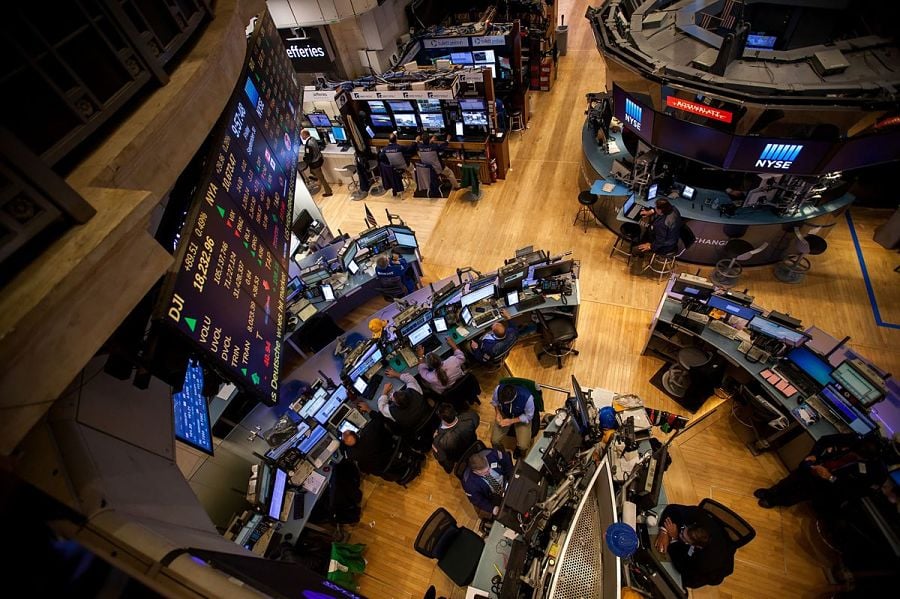

The rout in global stocks deepened as investors showed a lack of faith in the U.S. and European policy responses to the worsening spread of the coronavirus. Treasuries and the dollar surged.
The S&P 500 Index plunged as much 8.5% before paring the drop somewhat, with trading settling into a range after an initial bout of selling triggered a 15-minute NYSE-mandated halt. Trading will stop again if losses reach 13% any time before 3:25 p.m. European stocks tumbled 10% in the biggest intraday rout on record. The 10-year Treasury yield slid below 0.7%.
President Donald Trump’s travel ban and tepid fiscal measures sparked the latest leg down in risk assets, while the European Central Bank failed to stem the rout after it left rates unchanged, though it temporarily increased its QE program and took steps to boost liquidity.
On another bruising day across markets, the S&P 500, Nasdaq Composite and Nasdaq 100 indexes sank deeper into a bear market, with losses from February closing records extending to at least 23%.
The MSCI All-Country World Index extended its losses to trade more than 20% below last month’s peak, putting it on track for the same distinction.
The Stoxx Europe 600 tumbled the most on record, with trading volumes more than double the 100-day average. The cost of insuring debt issued by Europe’s investment-grade companies surged to the highest level since 2016.
Japanese stocks closed more than 4% lower even after another liquidity pledge from the country’s central bank. Australian shares were among the worst performing worldwide, sinking deeper into a bear market despite a stimulus plan there. India’s benchmark fell more than 8%.
Oil extended losses by more than 5%. Bitcoin slumped along with gold.
Wednesday evening, Mr. Trump unveiled steps including lending aid for small businesses and asked Congress to pass undefined payroll tax relief, but his Oval Office address gave the market little confidence that the U.S. is tightening its grip on the virus or its economic impact. America cancelled more events, the basketball league suspended play and businesses ordered employees to work from home.
The World Health Organization earlier called the outbreak a pandemic and other countries, such as the U.K., have taken more extreme measures to try to blunt the threat to growth.
“Market moves suggest monetary stimulus has reached its limits,” said Lucas Bouwhuis, a portfolio manager at Achmea Investment. “Most of the stimulus needs to come from the fiscal side and we are just not seeing enough of that yet.”
Meanwhile, reports that companies in the hardest-hit industries were drawing down credit lines to battle the effects of the virus on their businesses added to anxiety.
“The market will need much more to get its confidence back,” said Mohit Kumar, managing director at Jefferies International. “The economic slowdown is because consumers won’t spend as they don’t go out or travel — you can’t make them spend by giving cheaper money. What you need is fiscal stimulus.”

Relationships are key to our business but advisors are often slow to engage in specific activities designed to foster them.

Whichever path you go down, act now while you're still in control.

Pro-bitcoin professionals, however, say the cryptocurrency has ushered in change.

“LPL has evolved significantly over the last decade and still wants to scale up,” says one industry executive.

Survey findings from the Nationwide Retirement Institute offers pearls of planning wisdom from 60- to 65-year-olds, as well as insights into concerns.
Streamline your outreach with Aidentified's AI-driven solutions
This season’s market volatility: Positioning for rate relief, income growth and the AI rebound
